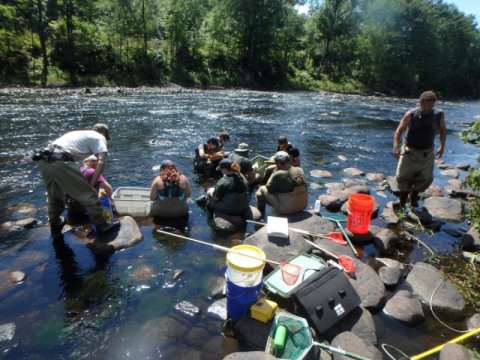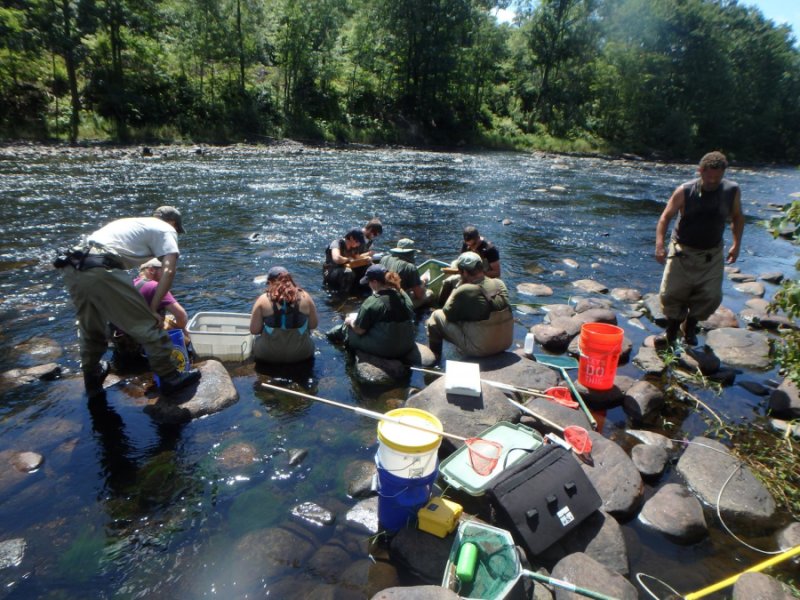[ad_1]

These coldwater researchers study streams to evaluate them for traits that buffer against the effects of climate change, acting as climate refugia for important species and resources. Photo courtesy of Rebecca Quiñones.
Credit: Rebecca Quiñones
Coldwater stream habitats are vulnerable to effects of climate change, particularly to changes in precipitation and air temperatures that alter their hydrology. Some of these streams are expected to diminish in size, permanently transition to warmer habitats, or possibly go dry. However, streams in deep canyons, poleward-facing slopes, thick canopy cover, groundwater-fed areas, and with fewer anthropogenic impacts are more likely to resist these changing conditions. Such areas may act as coldwater refugia — areas buffered from climate change that enable persistence of the ecosystem and its resources — and may provide long-term habitat to ecologically and economically important species.
The efficacy of conservation strategies to protect coldwater streams and the species that rely on them will depend upon understanding the potential persistence of these habitats. Such understanding may help with management practices including prioritization of dam removal, instream flow protection, vegetation management, and trout stocking. The first step is to identify locations that are relatively buffered from physical processes such as warming temperatures, hydrologic changes, or extreme disturbances like fire, drought, pests, and pathogens.
A study by Rebecca M. Quiñones, a fisheries biologist for the Massachusetts Division of Fisheries and Wildlife, and partners builds on existing models of watershed characteristics to map Massachusetts streams under different climate scenarios and time scales. Quiñones used the presence of coldwater species — for example, Brook Trout (Salvelinus fontinalis), Longnose Sucker (Catostomus catostomus) and Slimy Sculpin (Cottus cognatus) — to identify stream reaches most likely to be climate refugia. The goal of the study is to determine the probability of species occupancy before and after potential management actions and the influence of urban development, water demand, and other stressors on stream characteristics. She will present her findings at the 2018 ESA Annual Meeting in August.
Story Source:
Materials provided by Ecological Society of America. Note: Content may be edited for style and length.
Cite This Page:
Ecological Society of America. “Coldwater streams may provide refuge against changing climate.” . , 24 July 2018. <www..com/releases/2018/07/180724114006.htm>.
Ecological Society of America. (2018, July 24). Coldwater streams may provide refuge against changing climate. . Retrieved July 24, 2018 from www..com/releases/2018/07/180724114006.htm
Ecological Society of America. “Coldwater streams may provide refuge against changing climate.” . www..com/releases/2018/07/180724114006.htm (accessed July 24, 2018).
[ad_2]















